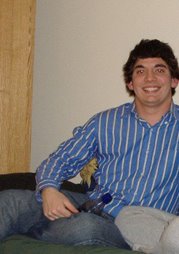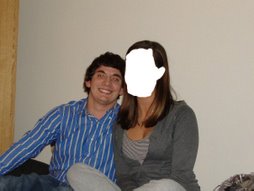Let us start this post with a brief description of who this Renee Hobbs is. Renee Hobbs is "one of the nation’s leading authorities on media education...She received an Ed.D from the Harvard Graduate School of Education (1985), an M.A. in Communication from the University of Michigan (1981) , and a B.A. with a double major in English Literature and Film Video Studies from the University of Michigan (1979). There is her credibility.
Hobbs is currently investigating the conditions in which Latinos in North Philadelphia view and analyze Tobacco advertisements. This includes critically analyzing print tobacco advertising, TV public service announcements and tobacco product placement in movies.
Simultaneously she is working on a study of "the impact of media literacy education on students' academic performance, family communication and civic engagement." Hobbs focuses on media in both these exploits.
I feel Hobbs research is a great thing. Students should learn to be critical of the world around them. Media surely is a great source to tap upon.
PLS is all about being media literate. This includes using media wisely, effectively. I gave the introduction of Renee Hobbs so she could gain some credibility. That us exactly what we are talking about right now. Being able to judge the credibility of information from different sources.
Advertisements are everywhere. On the computer, television, radio, side of buses, walls of buildings. Media is a major part of this world, we need to learn how to filter the good from the corrupt information.
The goal of educators is to make students aware of what is out there. That wikipedia is very reliable, but never the only source. That is a perfect example, use google but not just google. I feel Hobbs helps us think critically. And she is very media geared which is what i like about her.
Subscribe to:
Post Comments (Atom)



2 comments:
Phil, I wonder what you found most interesting in the reading and what specific connections you draw between Hobbs' project and the Project Look Sharp media literacy principles and/or the ELA and/or Technology Standards.
Your post doesn't focus on any specific references to Hobbs' work but does state in the most general way what her research focuses on. You repeat what we can learn from the book jacket.
Much of what you say in this post is a given--we all agree that "media is a great source" and that we need to be able to "judge the credibiilty of information from different sources," etc. etc.
Now focus more specifically on these readings and the connections you are making among them.
What DOES interest you about Hobbs' study? Where can you reference her "project" in relationship to the PLS principles? And to our state/national ELA and/or iSTE's Technology Standards for example.
And since you are an avid consumer of media--how can you connect the reading with your own experiences w/media and aspects of media you would as teacher want your students to explore?
Renee Hobbs is quite an interesting person to say the least. Her ability to captivate a skeptical audience with her teachings in media literacy is up on the list of Friedman and Richardson. The things that really surprise me is the way she budgets herself to pursue as many projects as possible to get her name and her voice heard. Among creating an association for the mass media literacy in education and her studies of latino youth and tobacco is dumbfounding. She is able to accomplish all these goals all while remaining a director of the PH. D. communications program at Temple University. Hobbs sets very high goals for media education that can hopefully one day all be accomplished.
Post a Comment